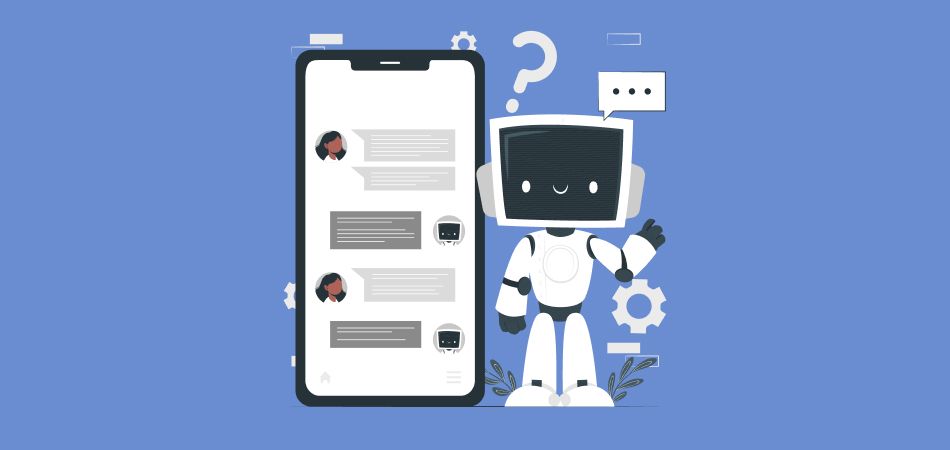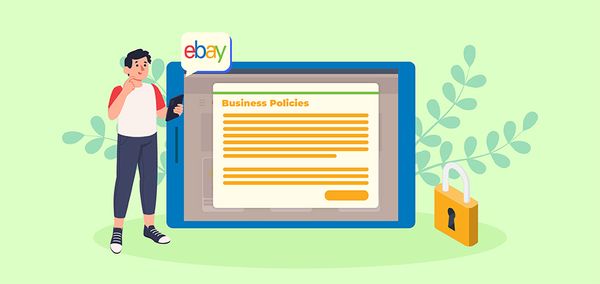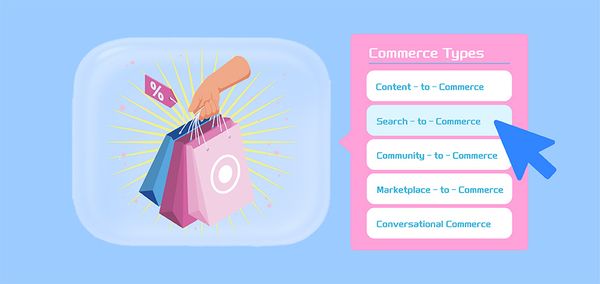Chatbot Automation - Ultimate Guide of How It Helps eCommerce

Chatbots are artificial intelligence-powered virtual assistants that use natural language processing to automate interactions and tasks. Chatbot automation can bring immense value to eCommerce businesses.
Chatbots are becoming a crucial technology for eCommerce success in the digital era. In this article, let’s check out how chatbot automation can help your eCommerce.
What Is Chatbots and Chatbot Automation
A chatbot is a software program that simulates a conversation with a user. Chatbots use artificial intelligence to interpret text or voice input and provide automated responses. They are also known as conversational agents or virtual assistants.
Chatbots augment human customer service - they don't replace it. The most effective implementations utilize chatbots to handle basics, while human agents focus on personal connections, complex issues, and problem-solving for customers.
| Get Started Now to Grow Your Online Business with the Best AliExpress Dropshipping Tool - DSers! |
Chatbot automation is the application of AI, machine learning, and programming to build conversational bots that can interpret natural language, respond appropriately, and automate tasks without direct human assistance. Chatbots can carry out routine interactions at scale by mimicking human conversations, freeing up people for more strategic work.
Chatbot automation can help e-commerce businesses streamline their customer interactions with these helpful features:
- Improved scalability: Chatbots can handle more tasks and queries than humans.
- Increased efficiency: Chatbots perform repetitive tasks faster and with fewer errors than people.
- Reduced costs: Automation lowers the need for human labor to perform routine tasks.
- 24/7 availability: Chatbots can operate continuously, responding to users anytime.
- Data-driven insights: Chatbot data can reveal patterns and areas for improvement in automated processes.
After understanding the basic terms of chatbot and chatbot automation, let’s take a deeper look at how it helps eCommerce in the following parts.
Improved Customer Support
When implemented effectively, chatbot automation can significantly improve the accessibility, speed, responsiveness, and cost-effectiveness of customer support for eCommerce businesses - all directly enhancing the customer experience.
Read more: The Importance of Proactive Customer Service
Here’s how chatbot automation helps eCommerce businesses improve customer support:
24/7 availability and instant responses:
Chatbots can provide customers with self-service support around the clock. They can respond instantly to inquiries about order status, product information, shipping details, account login issues, etc. This level of accessibility and prompt responses improves the overall customer experience for eCommerce shoppers.
Personalizing customer interactions and providing quick resolutions:
Through machine learning and analysis of customer data, chatbots can personalize their responses and recommendations. They can quickly resolve common issues, provide the information specific customers need, and suggest relevant products. This personalized, targeted support helps resolve customer inquiries swiftly.
Automating routine tasks:
Chatbots can automate many basic but repetitive support tasks like answering FAQs, processing returns, confirming orders, and notifying customers of shipping updates. This reduces the workload for human agents, lowering the overall customer service costs. The savings can then be reinvested in other customer experience improvements.
Boost Sales and Conversions
The key is developing chatbots that integrate intelligently into the customer journey at the right touchpoints to guide buyers through to completion. When done effectively, chatbot automation has a solid potential to increase sales and conversions online significantly. Here’s why:
Personalized recommendations for customers:
Chatbots can analyze customer data like past purchases, browsing history, and queries to provide targeted and relevant product recommendations. These personalized suggestions can help customers discover new products they may be interested in, potentially driving additional sales.
Guiding customers with automated sales funnels:
Chatbots can automate sales by guiding customers through product discovery to purchase completion. They can answer questions, provide coupon codes, verify order details, and handle payment processing - all within a seamless conversational experience that converts customers into buyers.
Implementing cart abandonment recovery strategies through proactive messaging:
Chatbots can detect when customers have items in their cart but don't complete checkout. They can then automatically initiate a conversation to offer discounts, answer questions holding up the purchase, or provide assistance completing the order. This proactive outreach can help recover abandoned carts and boost revenue.
Efficient Order Tracking and Updates
Chatbot-enabled order tracking gives customers a convenient, always-on way to monitor their purchases while reducing the workload on customer service agents. The result is a more seamless, transparent experience for eCommerce customers - precious for time-sensitive deliveries and complex order fulfillment processes.
Here’s a detailed explanation of how chatbot automation can bring efficient order tracking and updates for customers:
Providing real-time order status and delivery updates:
Chatbots can access order data in real-time and automatically notify customers as their orders progress through each stage - from packaging to shipping to out for delivery. This gives customers up-to-the-minute visibility into the status of their purchases.
Allowing customers to track their orders without human intervention:
Chatbots can provide a self-service portal where customers can check the status of their orders at any time by simply messaging the bot with their order number. The bot will look up the details and respond instantly with the current status. This allows for tracking orders 24/7 without contacting customer support.
Reducing customer queries in the order fulfillment process:
By keeping customers apprised of updates in real-time and allowing self-service tracking, chatbots reduce the number of people who contact customer support to check order status. This frees up agents for other tasks while still providing transparency to customers about how and when their orders are progressing.
Customer Data Collection and Insights
Using AI-powered data analytics and natural language capabilities to generate actionable intelligence from chatbot conversations can help businesses readily incorporate it into their strategies and day-to-day operations. When done right, data and insights are the lifeblood that fuels continuous improvement. Let’s see how chatbot automation help eCommerce business collect customers’ data and insights.
Collecting valuable customer data about preferences and behavior:
Through conversations with customers, chatbots can gather a wealth of data like purchase histories, product ratings, order issues, questions asked, and responses clicked. This provides a more holistic view of customer needs, wants, and preferences that a transaction record alone cannot provide.
Utilizing data-driven insights to personalize marketing campaigns and product offerings:
Chatbots can identify opportunities to tailor marketing and product recommendations to specific customer segments by analyzing customer data patterns. Personalized offers and suggestions based on these insights can improve conversion rates, average order values, and customer loyalty.
Generating reports and analytics to identify trends and business strategies:
Chatbots can take the data collected from customer conversations and automatically generate summary reports and visualizations. These insights into things like top requested features, common complaints, and frequently asked questions can help businesses improve existing offerings and identify new products to develop.
Automating Frequently Asked Questions (FAQs)
Chatbots take on basic question-answering to free up human agents for value-added interactions while still satisfying customers' immediate needs for information and resolving minor issues. The result is a faster, more comprehensive customer experience.
Creating chatbot responses for common FAQs:
The first step is identifying customers' most frequently asked questions and developing appropriate responses. Businesses can then program their chatbots with these standard answers so the bots can automatically respond when customers ask related questions.
Automating self-service options to empower customers:
Chatbots can provide customers with around-the-clock access to answers for common inquiries like product details, shipping policies, payment methods, return procedures, and account management. This gives customers the information they need instantly without having to contact support.
Freeing up customer support resources:
When chatbots can effectively handle routine questions and FAQs, they take on some of the workloads of human agents. This allows customer support teams to spend more time addressing complicated issues, troubleshooting, and providing the human touch for customers with niche needs or particular circumstances.
Integration with Other Business Systems
Proper integration with the eCommerce system or dropshipping tool enables chatbots to emulate an employee with access to all the data and system functions needed to assist customers and automate tasks - improving efficiency, transparency, and the overall experience.
Integrating chatbots with e-commerce platforms, CRM systems, and inventory management:
Chatbots can be connected to the major software systems eCommerce businesses rely on for critical functions like:
- E-commerce platforms: To access product catalogs, process payments, and fulfill orders through the bot.
- CRM systems: To retrieve customer profiles, order histories, and personalized details for more relevant responses.
- Inventory/POS systems: Check product availability and process refunds/returns based on real-time stock counts.
Enhancing efficiency by automating data synchronization:
Chatbots can automatically retrieve and update data in real-time by integrating with suitable systems. This syncing of information helps automate tasks, resolve customer issues faster, and keep data consistent across systems - removing inefficiencies.
Enabling seamless order management, customer tracking, and personalized interactions:
Tight integration allows chatbots to manage the full order lifecycle from within conversations - from taking payments to tracking shipments to notifying customers of delivery. The bots can also access customer profiles to provide tailored experiences.
Choosing the Right Chatbot Solution
After understanding all the effectiveness of chatbot automation for eCommerce businesses, have you wanted to apply it to your companies? But how to make it right? Consider some suggestions below when choosing a chatbot solution.
Evaluating different chatbot platforms and providers based on business needs:
Research the various chatbot platforms and providers available. Narrow your options based on your specific business needs and automation goals. The most important thing is understanding your business needs. Let’s do it first before finding a chatbot solution.
Consider functionality and features:
Assess how the chatbot solution matches your requirements in terms of:
- Customization: Can the bot be tailored to handle your specific use cases?
- Scalability: Can the bot quickly expand to meet increased volume?
- AI sophistication: What natural language processing and machine learning level is provided?
- Integration: Can the bot integrate with your existing systems and applications?
- Cost: What are the licensing fees, customization costs, and ongoing expenses?
Implementing and testing, and optimizing chatbot automation:
Implement chatbot automation in stages, starting with an essential proof of concept or pilot program. Test and refine functionality before full company-wide rollout. This iterative approach helps ensure the best results.
Conclusion
In conclusion, chatbot automation has significant potential to revolutionize how eCommerce businesses deliver customer service, marketing, sales, and operational efficiency. When implemented strategically to address the right use cases and integrated effectively with existing systems, chatbots can unlock immense value for eCommerce businesses. Discover more eCommerce tips on DSers Blog.













 Company
Company
 Why Choose DSers
Why Choose DSers
 Blog
Blog
 Help Center
Help Center




 Live Chat
Live Chat